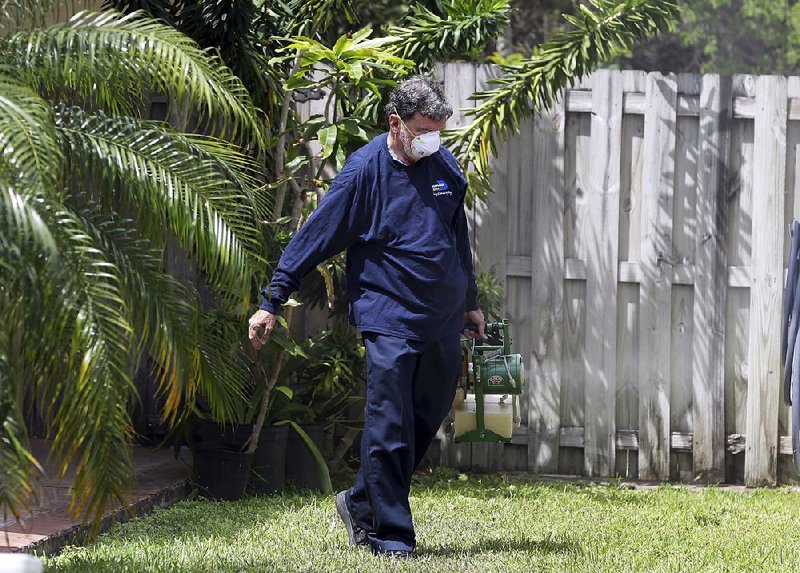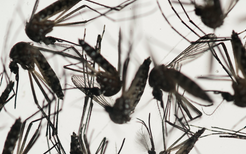WASHINGTON -- Federal, state and local health officials are trying to get a jump on preventing a widespread outbreak of Zika, a mosquito-borne virus, while Congress haggles over how much money they really need.
With that financing in limbo, health officials are shifting resources and setting priorities -- and not just in states where mosquitoes are starting to buzz. All but six states so far have seen travel-associated cases of Zika.
Dr. Anthony Fauci of the National Institutes of Health described raiding his agency's malaria, tuberculosis and influenza programs to fund a Zika vaccine as "stealing money from myself."
He needs more cash by the end of June to keep the vaccine on schedule. And there's no guarantee those other critical diseases will recoup the about $20 million Fauci has already used on the Zika vaccine.
Officials also fear the development of another health emergency.
"It's Zika now, but three months from now, who knows what it might be?" said Dr. Tim Jones, state epidemiologist in Tennessee, where few counties have mosquito eradication efforts.
Yet with funding pleas unanswered, the Centers for Disease Control and Prevention shifted $44 million to counteracting Zika from emergency preparedness grants that help state and local health departments with crises from flu outbreaks to hurricanes.
"You have to be careful when you take cuts from core infrastructure for the disease of the day," Tennessee's Jones said. "That's a risky way to do things."
Zika can cause devastating birth defects and fetal death if pregnant women become infected. Mosquitoes aren't yet spreading Zika in the U.S., but the epidemics in Latin America and the Caribbean have experts predicting small outbreaks in the U.S. as mosquito season heats up.
The more than 540 U.S. cases diagnosed so far involve travel to outbreak areas or sex with infected travelers. The CDC is tracking the outcomes of 157 Zika-infected pregnant women in the U.S., plus another 122 in U.S. territories.
Three months ago, President Barack Obama requested $1.9 billion in emergency funding to fend off Zika. The House and Senate are debating how much to grant -- and whether the money should come from cuts to other programs -- with no agreement in sight. House Republicans say the administration has padded its Zika request.
The Obama administration already shifted nearly $600 million from funds for Ebola flare-ups in West Africa and other accounts. On Friday, the president said lifetime care for a child born with Zika-caused brain damage may cost up to $10 million.
"Add that up. It doesn't take a lot of cases for you to get to $1.9 billion," Obama said. "Why wouldn't we want to make that investment now?"
Many state and local health departments aren't waiting, but efforts vary widely.
Florida is no stranger to mosquito-borne outbreaks -- it has handled small outbreaks of dengue, carried by the same mosquito as Zika -- and is squeezing money out of its usual budget to step up training and traps for areas that need extra help.
Officials opened a Zika information hotline that has fielded more than 1,700 calls since February. Miami-Dade County is stepping up enforcement of standing water violations and statewide, residents are being told to screen windows and rid their property of containers that trap rainwater.
Texas can perform dozens of blood tests a week for Zika, but that capacity could easily be overwhelmed if there's an outbreak, Health Commissioner John Hellerstedt said.
The state is spending $2 million in federal emergency preparedness money on public awareness but can't estimate how much more it needs, in part because mosquito control, like in many states, is funded almost entirely at the county and local level.
Information for this article was contributed by Travis Loller, Jennifer Kay, Cain Burdeau, Alanna Durkin Richer, Will Weissert and Russ Bynum of The Associated Press.
A Section on 05/22/2016

